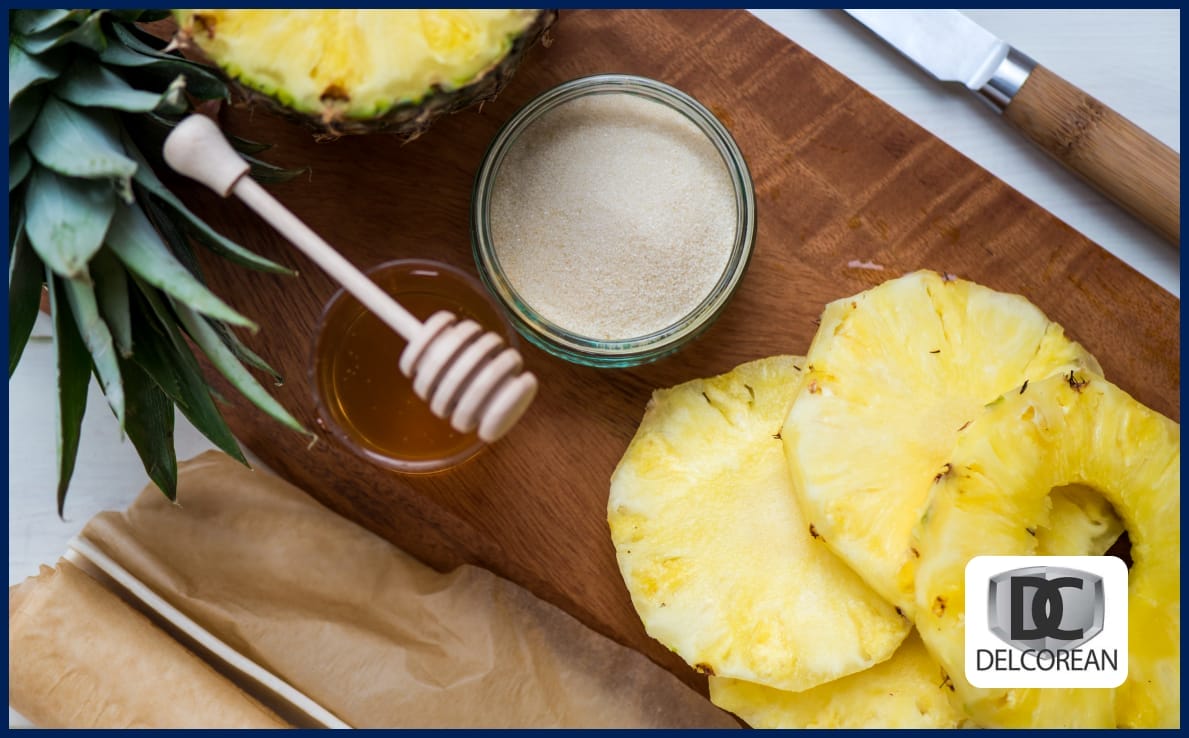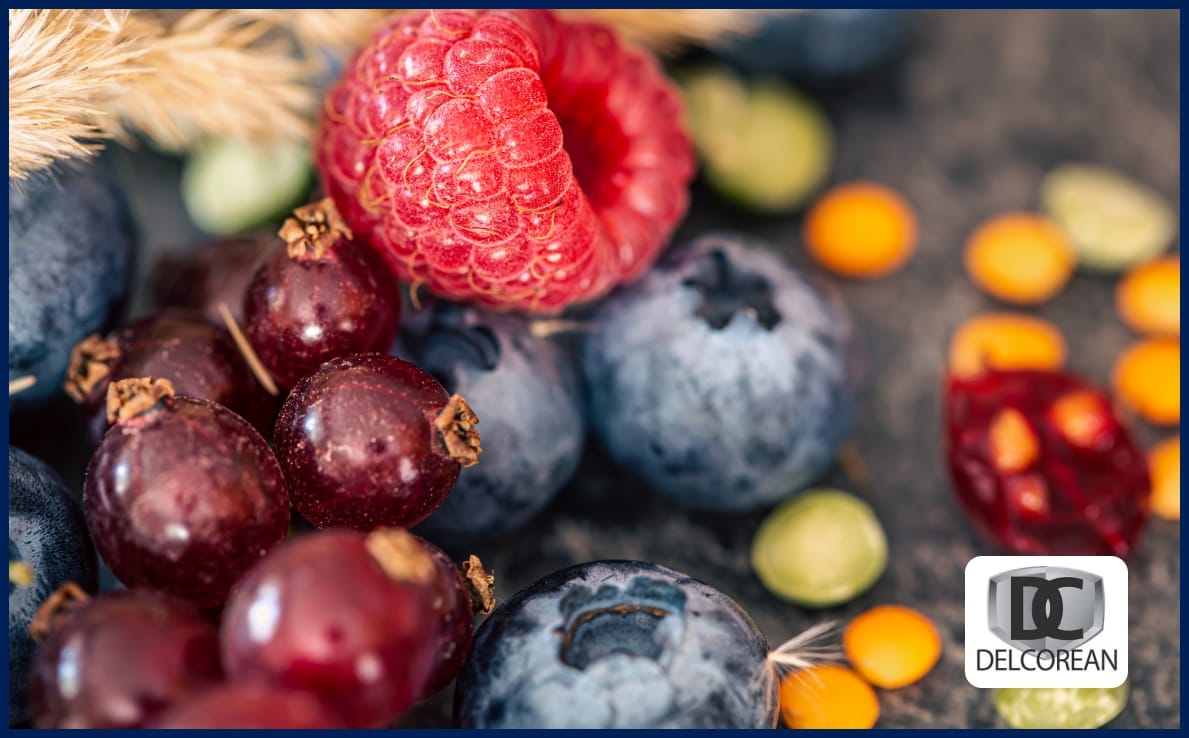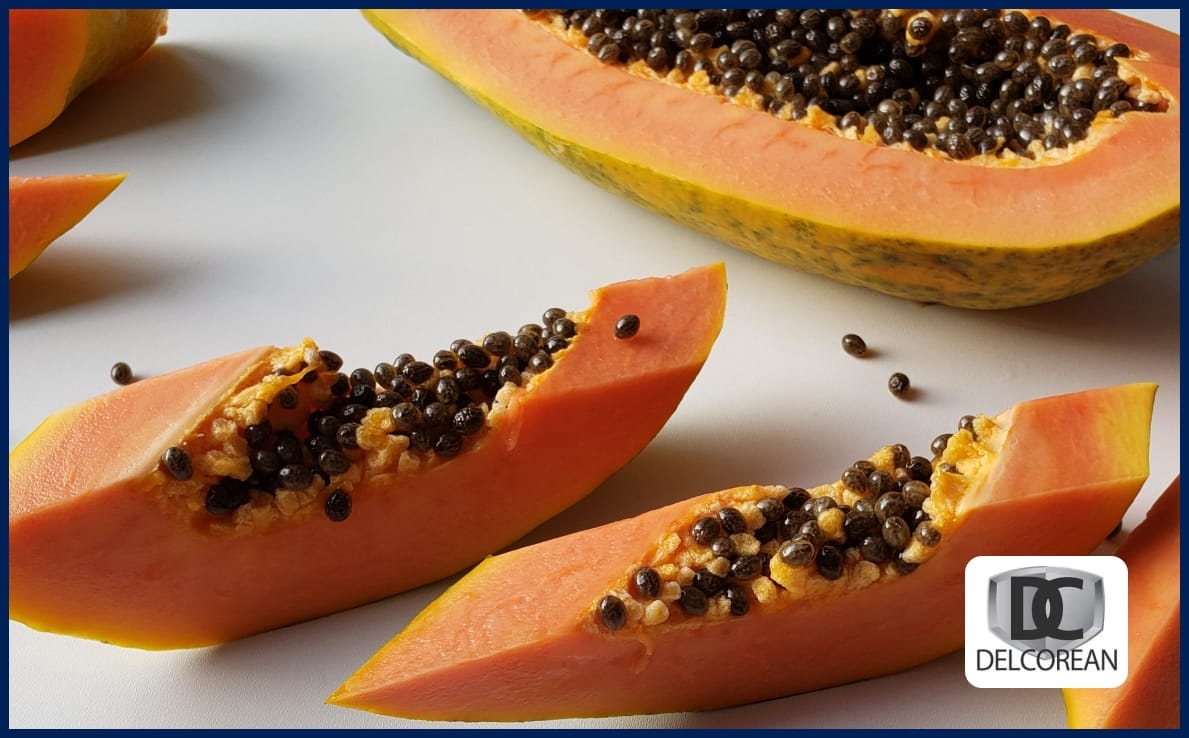A sore throat can make eating and drinking uncomfortable. While medications help manage symptoms, some fruits offer simple, natural support. They deliver nutrients to help the body fight infection and reduce irritation. These fruits are easy to eat when swallowing is painful and may support faster recovery.
Here’s a closer look at five fruits that are commonly recommended by health professionals and backed by nutritional science.
What Causes a Sore Throat?
A sore throat can have several causes. Here are some of the most common:
- Viral infections
- Bacterial infections
- Dry air
- Allergies
- Overuse
- Smoke and pollutants
- Acid reflux
If your sore throat lasts longer than a few days, gets worse, or comes with other symptoms like fever or swollen glands, it’s a good idea to check with a healthcare provider.
Why Nutrition Still Matters, Even If You’re Not Hungry
Losing your appetite is common when you’re sick, especially if swallowing is painful. Still, getting nutrients into your system plays a key role in recovery. Your body needs energy to keep your immune system working, repair irritated tissue, and stay hydrated.
You don’t need to eat a full plate. Even small amounts of nutrient-rich foods can help. Fruits are a good option because they’re soft, easy to digest, and full of vitamins and antioxidants. These nutrients support your immune response and can help bring down inflammation in your throat.
Think of food as part of your care plan. Simple, soft meals and snacks can make a difference—especially when your energy is low and your body’s working harder to fight off illness.
Related Article: Foods to Eat (and Avoid) When You Have a Sore Throat

1. Pineapples with Honey
Pineapple contains a natural enzyme called bromelain. This compound helps reduce swelling and irritation. Some studies suggest bromelain may also break down mucus in the throat. That can make it easier to breathe and swallow.
The fruit holds water and has a mild acidity. These qualities support hydration and help clear congestion. Many people notice a cooling effect after eating chilled pineapple.
Adding a small amount of honey may improve results. Honey coats the throat and helps fight certain bacteria. This combination supports both comfort and recovery.
Tip: Store sliced pineapple in the fridge. Cold fruit may help numb the throat for short-term relief.
2. Pomegranates
Pomegranates are particularly beneficial for sore throats due to their high concentration of antioxidants and anti-inflammatory compounds, especially punicalagins and anthocyanins. The fruit’s natural astringent properties help reduce swelling in throat tissues, while its antimicrobial effects may help combat bacterial infections that contribute to throat irritation. The vitamin C content in pomegranates supports immune system function, helping your body fight off the underlying causes of throat discomfort.
Additionally, the natural sugars in pomegranate juice can provide a soothing coating effect on irritated throat tissues, offering temporary relief from pain and scratchiness.

3. Antioxidant-Rich Berries
Strawberries, raspberries, and blueberries contain antioxidants like anthocyanins. These compounds reduce inflammation and protect tissue from damage caused by infections. Berries are also gentle on the throat due to their soft texture.
Freezing berries can reduce throat pain. The cold numbs receptors responsible for transmitting pain signals. Slowly eating frozen berries may feel calming and help manage discomfort.
Blueberries may also offer antimicrobial properties. Raspberries provide ellagic acid, which may reduce inflammation, though research is ongoing.
Smoothies are a good option if chewing is difficult. Blend chilled berries with banana or yogurt. This delivers nutrients without irritating the throat.

4. Papayas
Papaya is rich in papain and chymopapain. These enzymes help reduce inflammation by breaking down proteins involved in the body’s immune response. The soft texture and high water content make it easy to eat and gentle on inflamed tissue.
Papaya has a long history in traditional medicine for treating throat discomfort. Its role is similar across different cultures: reduce swelling and protect sensitive tissue.
Mashing ripe papaya or blending it into a smoothie are reliable options. For variety, it can be chilled or mixed with a teaspoon of honey for added comfort.
Throughout tropical regions worldwide, papaya has been used for centuries as a traditional remedy for throat inflammation. In many South Asian medical traditions, papaya leaves and fruit have been prepared as treatments specifically targeting throat ailments. This historical use aligns with the modern understanding of papaya’s enzyme content and anti-inflammatory properties, demonstrating how traditional wisdom often anticipates scientific discoveries.
For variety, papaya can be pureed into a nectar and diluted with water for a gentle, hydrating beverage that delivers healing enzymes directly to irritated tissues.

5. Bananas
Bananas are soft and easy to swallow. They provide potassium, an essential electrolyte that helps keep cells hydrated. This benefits the throat and overall recovery.
Bananas form a mild coating in the throat. This can protect tissue from further irritation. Because they are low in acid, they don’t sting the way some fruits might.
Slightly freezing banana slices makes them soothing to eat when throat pain peaks. They stay soft but offer mild numbing. Blending bananas into a smoothie with honey makes a practical, nutrient-rich option.
Tip: Choose ripe bananas. They are softer and easier on the throat.
Related Article: Throat Pain Homeopathy: 5 Remedies That Work Better Than Over-the-Counter Options
When to Seek Medical Care for a Sore Throat
Most sore throats clear up on their own within a few days. Rest, fluids, and simple home remedies often help manage the symptoms. But sometimes, a sore throat can be a sign of something more serious.
You should contact a healthcare provider if you notice any of the following:
- Sore throat that lasts more than 4–5 days without improvement
- Fever over 101°F (38.3°C)
- Difficulty swallowing or opening your mouth
- Swollen lymph nodes in your neck
- White patches or pus on your tonsils
- Severe pain that makes it hard to eat, drink, or speak
- A rash, especially when combined with a fever
- Persistent hoarseness lasting longer than two weeks
- Earache or joint pain along with throat symptoms
- A history of frequent throat infections or recent exposure to strep throat
If your throat pain comes on suddenly and is intense—especially with fever and no other cold symptoms—it’s a good idea to get tested for strep throat. Bacterial infections typically require antibiotics to prevent complications and reduce the risk of spreading it to others.
For children, very young kids, and anyone with a weakened immune system, it’s always best to err on the side of caution and check in with a doctor sooner rather than later.
Nature’s Soothing Symphony for Throat Relief
When sore throats strike, these five fruits offer natural relief through their unique properties and gentle textures. From the enzyme-rich pineapple to the soothing embrace of bananas, each fruit brings something special to ease discomfort and support healing.
While these natural remedies can provide significant relief, remember to combine them with proper hydration and rest for optimal recovery. Next time throat pain arrives, reach for these fruit allies alongside your regular remedies for a comprehensive approach to feeling better faster.


